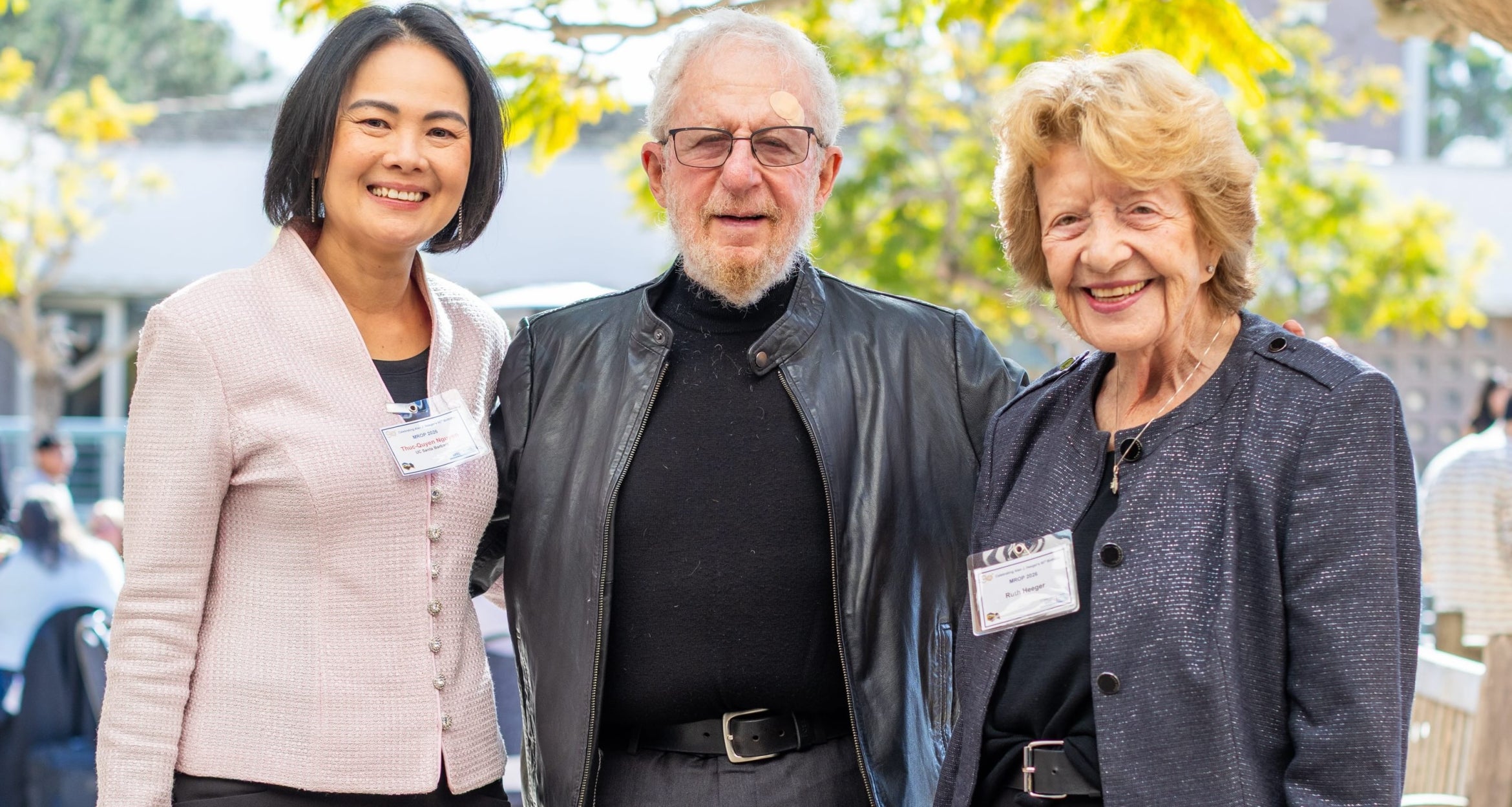Herbert Kroemer, a professor at the University of California, Santa Barbara and winner of a Nobel Prize in 2000 for his pioneering work in physics, has been elected to the nation's most prestigious scientific organization, the National Academy of Sciences.
Kroemer is on the faculty of UCSB's College of Engineering, where he holds the Donald W. Whittier Chair in Electrical Engineering and is also a professor of materials. He is widely known for developing semiconductor heterostructures used in high-speed and opto-electronics---the pioneering research for which he received the Nobel Prize.
This election brings to 22 the number of current UCSB faculty members who have been elected to the National Academy of Sciences (NAS).
The NAS made the announcement on April 29, naming 72 new members and 18 foreign associates from 11 countries in recognition of their distinguished and continuing achievements in original research.
Of his election, Kroemer said, "I'm thrilled. It's a wonderful honor."
UCSB Chancellor Henry T. Yang said: "I am extremely pleased that another one of our distinguished colleagues has received this extraordinary honor.
The recognition accorded to Herbert Kroemer's magnificent achievements in science in recent years has made us all so very proud. Being elected to this most prestigious academy is yet another wonderful distinction, one that shows the high regard in which Professor Kroemer is held by his peers in the scientific community."
Matthew Tirrell, dean of UCSB's College of Engineering, said of the news, "Herb Kroemer's career is a fine example of deep, fundamental, scientific work having a profound effect on technology and society. His positive influence on electronics and communications has transformed the world and improved the lives of millions."
A German citizen, Kroemer was elected as a foreign associate of the NAS. In 1997 he was elected as a foreign associate of another prestigious organization, the National Academy of Engineering. He has received important awards from his native Germany as well, including the Grand Cross of the Order of Merit, the highest award given by the Federal Republic of Germany. He even had an asteroid named for him when the German astronomer who discovered it learned of Kroemer's distinguished career.
Kroemer received his Ph.D. in theoretical physics in 1952 from the University of Goettingen, with a dissertation on hot-electron effects in the then-new transistor, setting the stage for a career in research on the physics of semiconductors and semiconductor devices. He worked in a number of research laboratories in Germany before coming to the U.S. in 1959 where he continued working in industry. He joined the faculty of the University of Colorado in 1968 and moved to UCSB in 1976.



